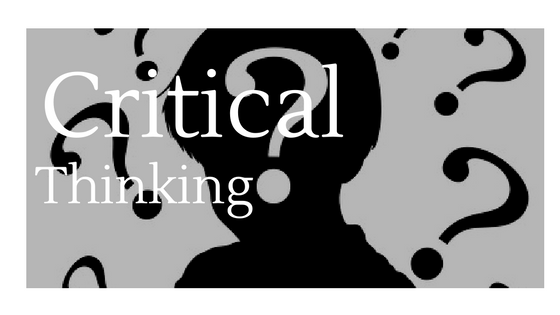Critical thinking is now a catchphrase in learning. It applies even to preschoolers. Before, education was limited to conveying information. However, there has been a move recently toward mentoring critical thinking. This is the ability that promotes thinking further than learning and remembering. Critical thinking is more of reason and analysis. In other words, it is more of learning how to think.
Teachers have adopted methods to help preschool children become skilled at critical thinking. For their part, parents should provide support by exposing kids to new experiences at home and involving them in household activities. The child can also use terminologies like “I think” or “I believe” more than the basic questions such as, whom, why, what, when, and where. Parents must ask questions from the little ones and wait patiently for answers.
Fortunately, youngsters have many opportunities to explore this world, ask questions and find out answers to their queries. For instance, a toddler crawls underneath a chair and tries to figure out how to get free. This is critical thinking in practice. The truth is studying how to think analytically is a very essential skill that preschoolers will need. Parents and mentors must teach these kids to develop these skills. The following are tips that can help youngsters build foundations for logical reasoning:
- Give kids more chances to engage in playful activities. A child becomes more resourceful while playing. You will see how tots react and use their imaginations while absorbed in recreation. It is an informal process of testing their capacity in critical thinking.
- Ask vague questions so you will see the ability of young boys and girls to solve problems. Instead of answering the questions of your child directly, throw back questions at them. Perhaps, you can ask: “What are your ideas?” or “I would like to know how you can solve the problem.”
- Do not solve the difficulty right away for them. You can ask questions and provide some information that will help so the kids do not get confused.
- Assist the child to learn how to come up with a hypothesis or theory. In child’s language, it is learning how to guess. This can encourage thinking creatively. It will help improve their skills in solving problems correctly.
- Teach your child to do research and look for more information. With so much technology advancement happening around, the kid will surely be interested in browsing through the computer to find answers for things. The child should be able to ponder through problems to build up thinking competence.
- Finally, help the toddler to consider advantages and disadvantages. It is just natural for the boy or girl to arrive at a wrong choice. He or she will think better next time.




The Foundation for Critical Thinking developed a short series of five “Intellectual Standards,” ways of helping elementary-aged children learn to think better. Teach these standards to your kids, and then interact with them in ways that reinforce the five standards.
Thank you for sharing! Last month, I had the privilege of attending the Foundation’s conference, where I led a roundtable discussion all about helping parents build critical thinking skills at home.